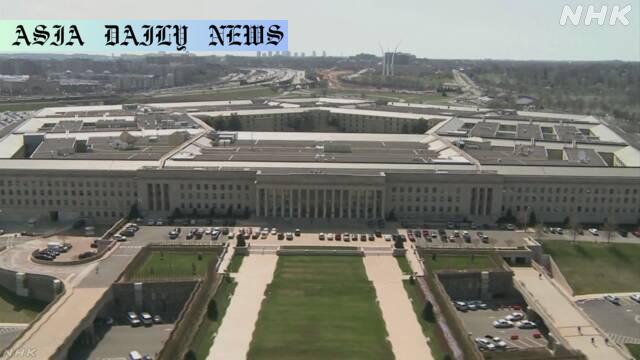Hegseth: Response to Signal Chat Allegations

Pentagon Refutes Allegations Against Secretary Hegseth
A US Department of Defense spokesperson, Sean Parnell, has strongly denied allegations that Defense Secretary Pete Hegseth shared classified information in a Signal chat with family members. According to Parnell’s official statement, there was no classified material in the communications at the center of the controversy, and the claims have been exaggerated by media outlets.
The allegations were brought to light following a report by the New York Times, which suggested that Hegseth had shared operational details relating to US military activities in the Middle East. However, the Pentagon pushed back, asserting the reliability of their investigation and calling the media’s coverage “sensationalism.” Parnell emphasized that the sources quoted in these reports included former Pentagon officials who had recently been dismissed or resigned, creating room for personal grievances to influence the discourse.
Media Bias and Use of Anonymous Sources
Sean Parnell accused media outlets of propagating misleading narratives by relying heavily on disgruntled former employees without contextualizing their motivations. “The grievances of former employees,” Parnell said, “appear to have taken precedence over journalistic integrity.” The intense scrutiny on Hegseth comes at a time when the Pentagon is navigating high-profile geopolitical challenges, especially in regions like the Middle East. The spokesperson hinted that the controversy might be an orchestrated campaign to sabotage the broader agenda of the administration.
While media independence remains integral in democratic societies, this instance raises questions about journalistic responsibility, accuracy, and due diligence in reporting sensitive topics, particularly those involving national security. These underlying dynamics spotlight the complex interplay between politics, media, and defense institutions.
Repercussions on Public Perception
This incident has broader implications for public trust in government institutions, as well as the media’s role in fostering transparency versus sensationalism. On one hand, the Pentagon’s firm denial underscores the importance of presenting evidence-based claims when dealing with sensitive allegations. On the other, this episode compels both journalists and citizens to engage critically with information without jumping to conclusions. At a time when trust in media and government is often polarized, narratives like these can further exacerbate divisions.
In conclusion, while there is a need for greater accountability across institutions, this controversy highlights how unverified allegations, amplified by media outlets, can lead to significant reputational damage. Maintaining balanced reporting and ethical responsibility will remain essential as the Pentagon continues to address such challenges.
Commentary
Examining the Hegseth Controversy and its Implications
The recent allegations surrounding Defense Secretary Pete Hegseth demonstrate the delicate nature of national security issues when they intersect with media and public scrutiny. While the Pentagon has squarely denied the claims, reports by major outlets like the New York Times have already ignited both political and social debates. This scenario emphasizes the vulnerability of defense institutions to reputational challenges, especially when sensitive topics like information leaks are involved.
The Role of Media in Shaping Public Perception
Media entities play a pivotal role in shaping how such events are perceived by the public. While investigative journalism is essential to hold institutions accountable, it must also rely on credible sources and avoid biases that could undermine public trust. In this case, the Pentagon spokesperson’s comments about disgruntled former employees being used as the primary sources should prompt introspection among journalists about the standards of evidence and impartiality in reporting.
National Security and Transparency Balance
An additional layer of complexity in this issue is the balancing act between national security and transparency. Citizens have a right to know about the actions of public officials, particularly in defense and foreign policies. However, accusations related to classified information must be met with thorough investigations before being presented to the public as fact. Inaccurate or sensationalized reporting can risk undermining the credibility of not just individuals, but the institutions they represent.
Concluding Thoughts
The Hegseth controversy highlights the nuanced interplay between media, politics, and national security. As public discourse continues to evolve, it becomes increasingly important for both institutions and journalists to prioritize factual accuracy over sensational narratives. The need for accountability should never compromise principles of fairness and reliability. This incident should serve as a reminder for all parties to strengthen their commitment to ethical practices while navigating such contentious topics.


